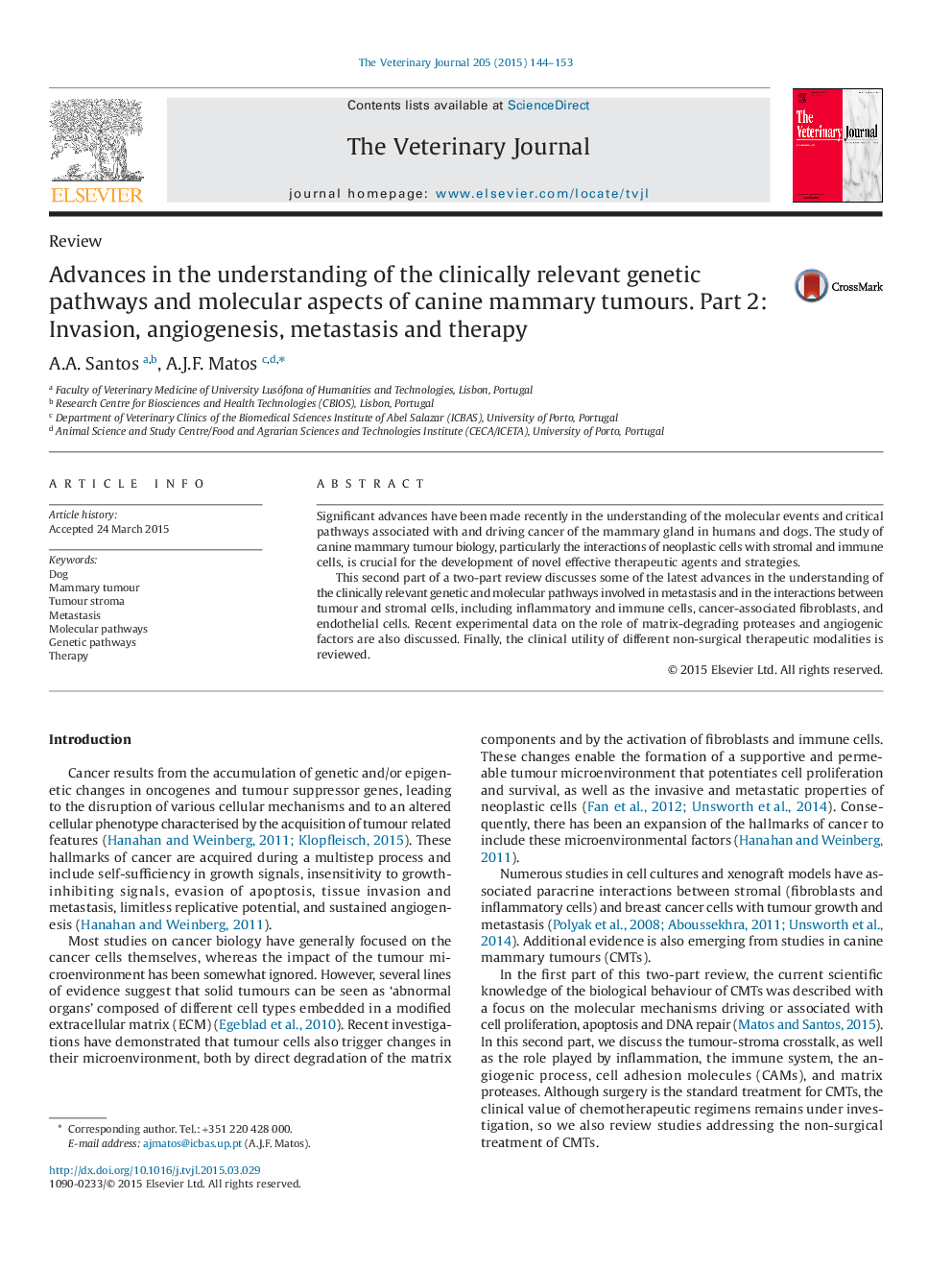| Article ID | Journal | Published Year | Pages | File Type |
|---|---|---|---|---|
| 5797464 | The Veterinary Journal | 2015 | 10 Pages |
â¢Canine mammary tumour (CMT) treatments must rely on solid knowledge of cancer biology.â¢Recent advances have been made in the understanding of the molecular pathways of CMTs.â¢The biological role of tumour-stroma crosstalk has recently been unveiled.â¢Angiogenic factors, matrix proteases and adhesion molecules influence metastasis.â¢New CMT systemic therapies are currently under investigation.
Significant advances have been made recently in the understanding of the molecular events and critical pathways associated with and driving cancer of the mammary gland in humans and dogs. The study of canine mammary tumour biology, particularly the interactions of neoplastic cells with stromal and immune cells, is crucial for the development of novel effective therapeutic agents and strategies.This second part of a two-part review discusses some of the latest advances in the understanding of the clinically relevant genetic and molecular pathways involved in metastasis and in the interactions between tumour and stromal cells, including inflammatory and immune cells, cancer-associated fibroblasts, and endothelial cells. Recent experimental data on the role of matrix-degrading proteases and angiogenic factors are also discussed. Finally, the clinical utility of different non-surgical therapeutic modalities is reviewed.
